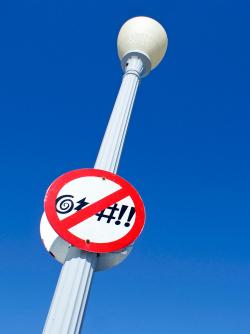Lies Abound...
Is honesty the best policy?
Today, truth seems elusive as opposing political parties trade strident accusations of “Lies! All lies!” Popular media outlets proclaim “Breaking News!” with each raucous new charge and countercharge. Respected government agencies fire top officials for tarnishing their reputations and damaging their credibility.
Locally, states and municipalities have seen streams of elected officials convicted of ethics violations. Perjury—lying under oath—is a serious crime that has brought many down from trusted roles. In academia, students, teachers, and administrators cheat, mishandle expenses, and engage in recruiting violations ad nauseam.
Honesty is not merely the “best policy”—it is the only policy that works in the long run! Lying, half-truths, innuendo, and gossip ruin individuals, families, businesses, and even entire countries. With dismay, we see it happening around the world. Why?
Clearly, the lack of basic moral instruction—at home and in all levels of education—is bearing a crop of immoral briars and brambles, not the wholesome fruit of honesty and integrity.
Yet there is another source of oft-unrecognized falsehood. You may be surprised at the lack of honesty and integrity woven into mainstream Christian belief. Most major denominations and worldwide Christian-professing organizations teach that Jesus Christ has replaced or abolished God’s Ten Commandments given at Sinai and that Christians are effectively without obligation to obey them. Many acknowledge those commandments as sound moral “principles,” but not as a solid and definitive basis for Christian conduct.
Examples of this departure from biblical instruction are many. The Fourth Commandment states, “Remember the Sabbath Day, to keep it holy” (Exodus 20:8). Scripturally, the Sabbath should be observed from sunset on Friday until sunset on Saturday. Yet most of mainstream Christianity observes Sunday as the day of worship. Similarly, though the Second Commandment prohibits using idols to represent God, many churches around the world ignore this and display pictures, statues, icons, or relics as a part of their worship.
The Traditions of Men
As the ancient Israelites were preparing to enter the Promised Land, God warned them, “…do not inquire after their gods, saying, ‘How did these nations serve their gods? I also will do likewise.’ You shall not worship the Lord your God in that way…. Whatever I command you, be careful to observe it; you shall not add to it nor take away from it” (Deuteronomy 12:30–32). Through the centuries, pagan traditions such as those tied up with Christmas, Easter, Halloween, and Valentine’s Day filtered into the practices of most mainstream Christians and their churches, even as these churches gradually abandoned the Holy Days that God actually commanded, found in Leviticus 23.
The Apostle John made it very plain: “Now by this we know that we know Him, if we keep His commandments. He who says, ‘I know Him,’ and does not keep His commandments, is a liar, and the truth is not in him” (1 John 2:3–4). This statement corresponds well with Jesus Christ’s instructions in John 14:15: “If you love Me, keep My commandments.” To the disciples, He said, “If you keep My commandments, you will abide in My love, just as I have kept My Father’s commandments and abide in His love” (John 15:10).
In both the public square and church buildings, truth is often missing. Party ideology has replaced true concern for the governed. Man-made religious traditions have replaced biblical truths.
You cannot fix the political dysfunction or reform the entrenched religious establishment, but you can “work out your own salvation with fear and trembling” (Philippians 2:12). How does one go about this profound life change? By embracing those truths that others reject.
By making obedience to God’s truth a priority, you can be freed from the lies and deception that dominate this age—because “you shall know the truth, and the truth shall make you free” (John 8:32).






